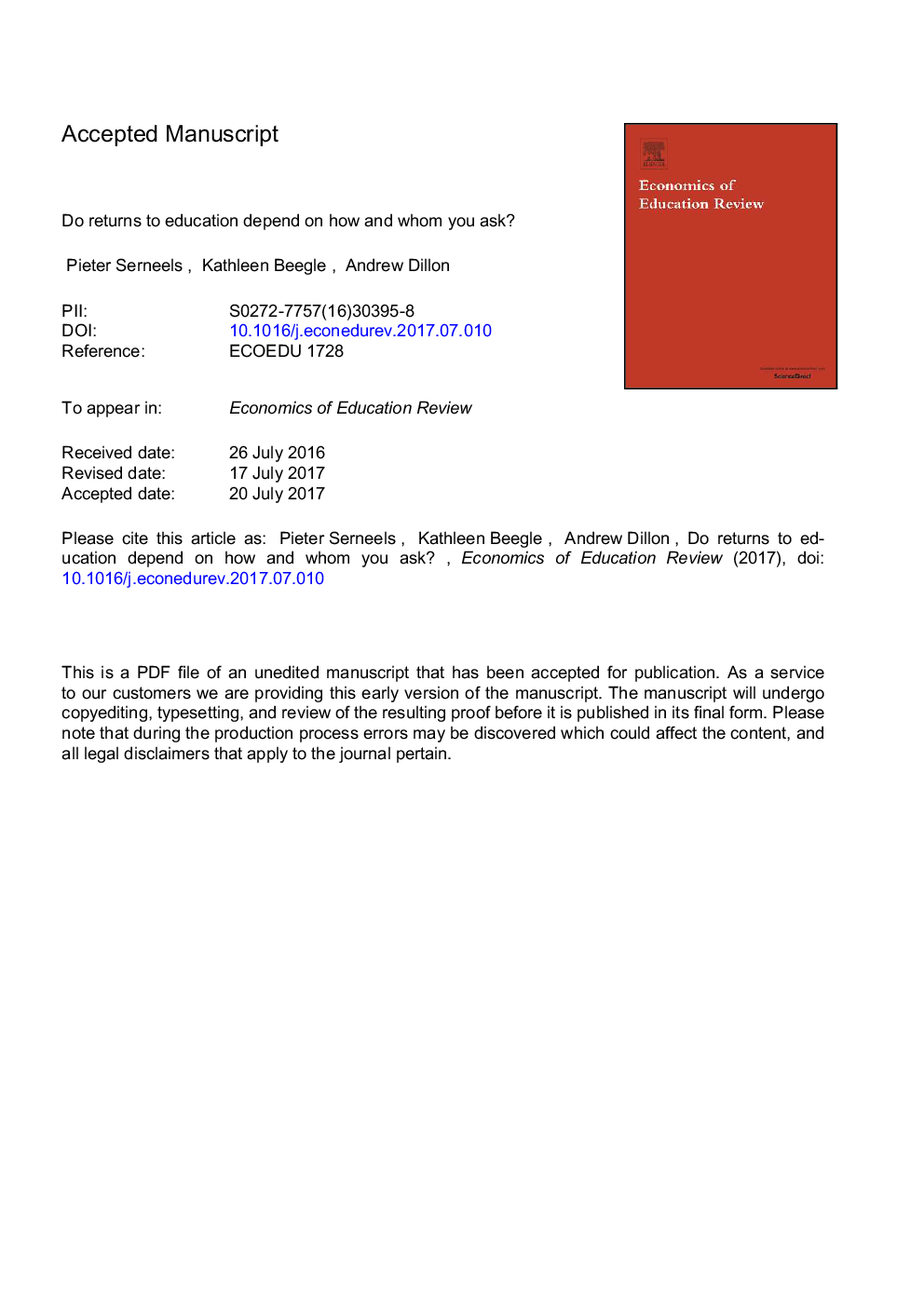ترجمه فارسی عنوان مقاله
آیا به تحصیل بستگی دارد که چگونه و چه کسی از شما می پرسند؟
عنوان انگلیسی
Do returns to education depend on how and whom you ask?
| کد مقاله | سال انتشار | تعداد صفحات مقاله انگلیسی |
|---|---|---|
| 112617 | 2017 | 36 صفحه PDF |
منبع

Publisher : Elsevier - Science Direct (الزویر - ساینس دایرکت)
Journal : Economics of Education Review, Volume 60, October 2017, Pages 5-19
ترجمه چکیده
بازگشت به تحصیلات همچنان یک پارامتر مهم برای تحلیل اقتصادی است. ادبیات بزرگ این برآوردها را ارزیابی می کند، اغلب با دقت به مسائلی مانند انتخاب اشتغال و اشتغال در شرایط تحصیل تکمیل شده. اکتشافات بسیار کمی در مورد این که آیا برآوردهای بازده گمرکات بستگی به چگونگی جمع آوری اطلاعات مربوط به دستمزد دارد، بوده است. بر اساس تجربیات بررسی شده در تانزانیا، این مقاله نشان می دهد که برآوردهای بازدهی تحصیلی با طراحی پرسشنامه متفاوت است، اما نه به این معنا که آیا اطلاعات مربوط به اشتغال و حقوق و دستمزد خود گزارش شده یا توسط یک متقاضی پروکسی جمع آوری شده است. تفاوت های حاصل از نوع پرسشنامه ها قابل توجه است و از بازده بالاتری از 5 درصد در میان مردان با تحصیلات عالی تا 16 درصد در میان زنان کم تحصیل کننده بیشتر است. این تفاوت ها در مقادیری مشابه با تعصب در تخمین عادی ترین مربعات است که توجه زیادی را در ادبیات دریافت می کند. یافته ها نشان می دهند که طراحی نظرسنجی در برآورد بازدهی تحصیلی اهمیت دارد و این مراقبت در مقایسه با زمینه ها و در طول زمان، به ویژه اگر داده ها از طریق نظرسنجی های مختلف تولید می شود، مورد نیاز است.

